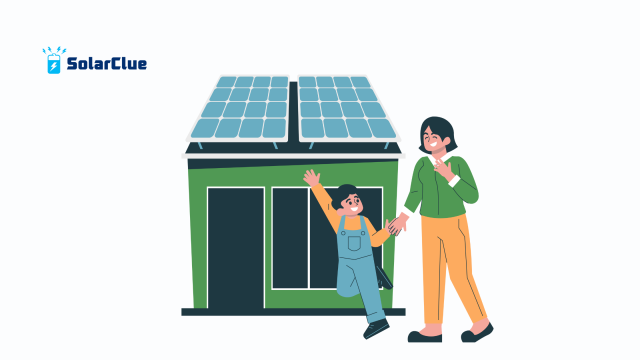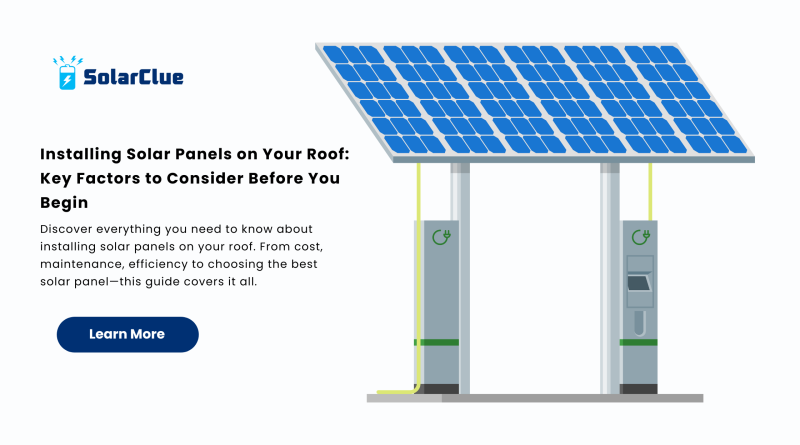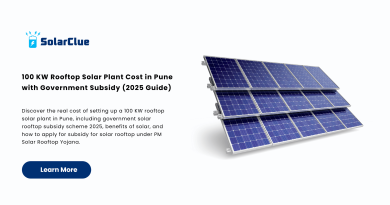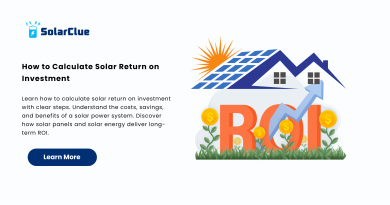Installing Solar Panels on Your Roof: Key Factors to Consider Before You Begin
In today’s energy-conscious world, installing solar panels on your roof isn’t just an eco-friendly choice—it’s a smart investment that can slash your electricity bills and increase your property’s value. As solar technology becomes more affordable and efficient, homeowners across the globe are turning to the sun to power their homes. But before you take the leap into solar energy, there are several crucial factors to consider—from roof compatibility and system costs to maintenance needs and installation best practices. This guide walks you through everything you need to know to make an informed, confident decision.
Table of Contents
- 1 Why Consider Solar Power for Your Home?
- 2 Evaluate Your Roof Condition
- 3 Analyze Sunlight Exposure
- 4 Understand the Cost Implications
- 5 Choose the Right Type of Solar Panel
- 6 Consider Maintenance Needs
- 7 Installation Options and Process
- 8 Financing Your Solar Investment
- 9 Understand Your Energy Needs
- 10 Local Regulations and HOA Guidelines
- 11 Weather and Climate Considerations
- 12 Battery Storage Options
- 13 Return on Investment Analysis
- 14 Environmental Benefits
- 15 Final Checklist Before Installation
- 16 Conclusion
- 17 FAQs
Why Consider Solar Power for Your Home?
With rising electricity prices and growing environmental concerns, more homeowners are switching to solar. Installing solar panels on your roof is not only a smart investment but also a step towards a sustainable future. This article covers what you should consider before installing solar panels to ensure maximum value and efficiency.
Evaluate Your Roof Condition
Structural Integrity First
Before diving into a solar panel installation, ensure your roof is in good condition. If it’s aging or damaged, replacing it prior to installing solar panels will save you money and hassle in the long run.
Roof Orientation and Tilt
A south-facing roof with a 30-45 degree angle offers the best solar panel efficiency. Flat roofs may require mounting systems to adjust the tilt for optimal energy production. Wondering which panels work best? Visit SolarClue’s expert guide for recommendations on the Best Solar Panels for Flat roofs.
Analyze Sunlight Exposure
Shading and Obstructions
Check for trees, chimneys, or nearby buildings that may obstruct sunlight. Even partial shading can significantly affect your solar panel efficiency. Tools like Google’s Project Sunroof or a local solar installer can provide accurate assessments.
Understand the Cost Implications
Initial Investment and Incentives
The solar panel cost varies depending on system size, panel type, and installer rates. However, government subsidies and tax rebates can reduce upfront costs significantly. Be sure to inquire about local incentives.
Long-Term Savings
Despite the initial solar panel cost, many homeowners see a return on investment within 5–7 years through energy bill savings and net metering.
Choose the Right Type of Solar Panel
Efficiency Matters
Higher solar panel efficiency means more energy output from fewer panels, saving space and maximizing returns. Monocrystalline panels generally offer the best performance.
Durability and Warranty
Look for panels with at least 25-year performance warranties. Brands with strong reputations tend to offer the best solar panel options.
Consider Maintenance Needs
Keeping Panels Clean
Solar panel maintenance is minimal but essential. Dirt, leaves, or bird droppings can reduce efficiency. Cleaning them twice a year or after major weather events is usually sufficient.
Monitoring Systems
Many solar panel for home systems include apps to monitor energy output and detect performance issues early.
Installation Options and Process

Hiring Professionals
Always opt for certified installers for solar panel installation. Professionals ensure your system is safe, efficient, and complies with regulations. Check out blog.solarclue.com for insights on choosing the right installer.
Timeline and Approvals
Installation generally takes 1–3 days, but permits and utility approvals can extend the process. Your installer should manage all paperwork.
Financing Your Solar Investment
Purchase vs Lease
You can either buy your solar panel for home system outright or lease it. While buying offers better long-term savings, leasing requires less upfront capital.
Solar Loans
Some banks and financial institutions offer green loans with lower interest rates specifically for solar panel installation.
Understand Your Energy Needs
Analyze past electricity bills to determine the system size you need. Oversizing or undersizing can impact your savings. Most homeowners need 3-6kW systems.
Local Regulations and HOA Guidelines
Always check with your homeowner association and municipality. Some areas have restrictions on panel placement or visibility.
Weather and Climate Considerations
Performance in Various Climates
Solar panels on your roof can still be effective in cloudy or colder climates, although efficiency may vary. Make sure your installer uses weather-resistant components.
Battery Storage Options
Battery storage allows you to store excess energy for night use or outages. It’s especially useful in areas with less reliable grid systems.
Return on Investment Analysis
Use solar calculators to estimate your payback period. The higher the solar panel efficiency, the quicker your return.
Environmental Benefits
Besides cost savings, installing solar panels reduces your carbon footprint, contributing to a cleaner environment.
Final Checklist Before Installation
- Inspect roof integrity
- Evaluate shading and orientation
- Confirm local incentives
- Choose high-efficiency panels
- Get multiple installer quotes
Conclusion
Installing solar panels on your roof is one of the most impactful investments you can make for your home and the planet. From understanding solar panel cost to evaluating solar panel maintenance, every step matters. Make an informed decision and start your solar journey today.
Want to make your rooftop future-ready? Explore expert advice and high-quality solar solutions at SolarClue.com and Blog.SolarClue.com.
FAQs
Q1: How long does a solar panel last?
Most solar panels come with a 25–30 year warranty and can last even longer with proper care.
Q2: What happens if my roof needs repairs after installation?
Panels need to be temporarily removed. That’s why it’s recommended to inspect your roof beforehand.
Q3: Can I install solar panels myself?
DIY installation is not recommended due to safety and regulatory reasons. Always hire certified professionals.
Q4: What are the best solar panels for flat roofs?
Panels with adjustable mounting systems like monocrystalline types are ideal. Visit SolarClue for detailed comparisons.
Q5: Do solar panels work during power outages?
Only if paired with a battery storage system. Grid-tied systems typically shut off for safety during outages.
Visit SolarClue.com today and start your clean energy transformation—your roof is ready, are you?



